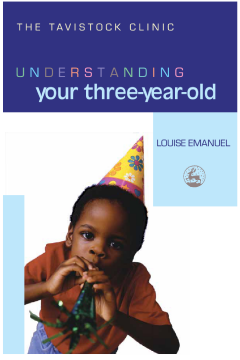
Additional Information
Book Details
Abstract
What changes when a young child begins to leave toddlerhood behind? How do you keep track of your child's good and bad experiences at nursery and kindergarten and support her through them? What is the best way to cope with temper tantrums, and why do they happen?
Louise Emanuel presents practical tips and a great deal of emotional reassurance for both the first-time and the experienced parent. She offers helpful guidance on a range of topics, from managing sibling rivalry and ensuring everyone in the family gets a good night's sleep, to encouraging conversation and imaginative solitary and social play.
Louise Emanuel, BA, DipEd, MPsychPsych is consultant child psychotherapist in the Child and Family Department of the Tavistock Clinic. She lives in London with her husband and two children.
They are a rich resource of balanced, sensitive and non-judgemental advice to help parents and professionals looking after children. The central subject is the mental and emotional development of children and their parents. And the style is intelligent and friendly. Each book is divided into very easily digestible sections, with excellent (and often very funny) case studies scattered liberally throughout and a really detailed contents page for those "where did I see that bit about"moments. The books form a cohesive and continuous guide to almost everything I have ever wondered about bringing up my children. I learnt a lot. And a friend, mother of her first two-year-old, could not wait to get her hands on these when I described them. They are now going into our bathroom "reference library" for family and visitors to peruse and digest.
0-19 Magazine
Table of Contents
| Section Title | Page | Action | Price |
|---|---|---|---|
| Preface | |||
| Acknowledgements | |||
| About the editor | |||
| List of acronyms and abbreviations | |||
| 1. Introduction: WASH projects and complex adaptive systems | |||
| Kate Neely | |||
| 2. Systems thinking and transdisciplinarity in WASH | |||
| Kate Neely | |||
| 3. Using causal loop diagrams to understand handpump failure in sub-Saharan Africa | |||
| Elisabeth S. Liddle and Richard A. Fenner | |||
| 4. Applying social network analysis to WASH | |||
| Duncan McNicholl | |||
| 5. Social-ecological system resilience for WASH | |||
| Jeremy Kohlitz, Naomi Carrard, and Tim Foster | |||
| 6. Bureaucracy, WASH, and systems thinking | |||
| Chris Brown | |||
| 7. Learning for adaptive management: using systems thinking tools to inform knowledge and learning approaches | |||
| Melita Grant and Juliet Willetts | |||
| 8. Measuring impact in WASH from a complex adaptive systems perspective | |||
| Chris Brown | |||
| 9. WASH adaptation in Uganda (a practitioner case study) | |||
| Adam Harvey | |||
| 10. Resources for systems thinking | |||
| Kate Neely |
